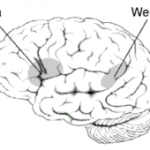Archives
now browsing by author
Linguistics Links
I am interested in linguistics because I would like to teach english as a second language. Most people who want to teach english, want to teach abroad. There are plenty of places all over the world to teach.
For someone to teach english, you’ll have to know at least one other language. There are lots of ways you can learn another language: online, in a classroom, and even by just going abroad! And there are plenty of people out there willing to give advice on how to learn a language. Here is a map of languages spoken throughout the world.
Also a very interesting thing to learn about is the different dialects spoken throughout the world. This website is a very detailed database of different dialects, where they are found, and the differences between similar dialects. In other classes I have more specifically learned about dialects of Spanish.
And to reward yourself for all your hard work and learning, here are some fun linguistics links:
Shit Out-of-State Kids Say Vlog
Kat, Stellan, Sydnie, and Seth explore into the differences between the language of in-state and out-of-state students
Homework 4
Language Variation:
14. Phonetic Phonetic Phonetic
Syntactic Syntactic Syntactic
Phonetic Phonetic Phonetic
Semantic Semantic Semantic
Syntactic Syntactic Syntactic
Phonological Phonological Semantic
16. a. non-native non native
b. natural natural
c. natural some (I feel like there needs to be a “to be” in front of the word “cleaned” to sound natural)
d. some some
e. non-native non native
f. some some (depending on inflections I think)
g. some natural
h. some some
i. non-native some (definitely have heard this before, it’s just… awkward)
j. natural natural k. non-native non native
l. some non native m. natural some (whom is dated)
n. some some
o. non-native non native
17. a. bucket bucket
b. bag bag
c. blinds blinds
d. soda soft drinks or soda
e. fireflies fireflies
f. in line in line
g. clean it up clean it up
h. you guys you guys
i. a quarter to a quarter to
Language & Culture:
- What are some of the competencies that are part of communicative competence?Politeness, speaker roles, turn-taking roles, softening, and Non-Verbal Communication,
- How does cultural competence differ from linguistic competence and from performance? Linguistic competence is a persons ability to speak a language, and linguistic performance is what we do with that ability. Cultural competence is different in that it is the ability to use more than just the information needed to speak a language, but also be able to communicate using cultural norms.
- What is an adjacency pair? Make a list of five adjacency pairs in American English not mentioned in the chapter.
An adjacency pair is essentially a conversation/exchange between two people where what the first person says provokes the response given by the second person.
- “Sup” — “Howdy”
- “Can I have a bite of your sandwich?” — “No”
- “Do you want to go out on a date?” — “No”
- “What would happen if I microwaved this?” — “It’d warm up”
- “Mom hates you” — “I know”
15. Based on the material in this file, what are some ways that power relationship can be established in a conversation? Give some concrete examples from your own experience. What cues do you think might be particularly indicative of someone exerting power as opposed to someone acquiescing? Are these cues inherent or socially determined? In an example of professor and student having a conversation, I notice that the student typically adjusts their vocabulary to match the level of the professor, but they also seem a bit more polite and kind of submissive in a sense. Lots of “thank yous” and apologies pertaining to taking up the professor’s time are pretty evident. I think these sorts of cues would be considered socially determined, due to the fact students only speak this way when they know the professor on a professional basis.
28. Give an etic description and an emic description of each of the following:
-
- How you and a friend greeted one another today. Usually among my friends, when one person greets another, the second person returns with the same greeting. If I were to walk up to my friend and say “hey,” she would more than likely say “hey” back instead of using a different greeting. This might show that the person starting the conversation has the most power in it.
- What you ate, said, and did at lunch today.
- How your instructor started class. My astronomy professor always starts class saying “Alright you rascals…”
- 29. Explain the difference between passive observation and participant observation, and give an example of each. Participant observation is a way to do research by making observations from within a community in order to understand why and how people do things on a daily basis. While passive observation is doing research by passively observing everyday life in the community being researched, without actively participating in the community.
Language Change
10. How do we know there was a proto-Germanic even though we do not have written records of it? (i.e., we don’t have anything like Latin, as we have with French, Spanish, Italian, etc.)? We know there was a proto-Germanic because of the similarity in other languages. There can also be a history traced from cultures and their languages to one another. Latin is not a commonly spoken language, but it is still taught and understood because of the history tying it to the many languages it is connected to.
14. Why do we spell words knife and knight with a <k> when they are pronounced with an initial alveolar nasal? This is possibly to do previous language spellings that transferred into English. It could be that the original root was spelled differently than how it sounds. This could also be a form of deletion, where a sound in the word is no longer pronounced.
22. Try to come up with other aspects of English morphology that currently show some degree of fluctuation and variation (e.g., saw versus seen as the past tense form of see). To what extent are analogical processes at work in causing these fluctuations? One common example is when people argue over saying something is “more fun” or when something is “funner.” I have heard both used before, and some people hear one as being more correct than the other.
29. Think about terms you use to talk about computers and actions on computers (e.g., “surf the net”). Online, hacker, mouse
- How many of these are old words that have been put to new use, and how many are totally new words? Why do you think this would be the case? I think most of the words are old words given a new meaning. The word “hacker” used to be used in a different sense than it is now. Online used to mean situated on the route of a railway, and obviously mouse used to mean the small rodent. I think this is the case because languages tend to use words they have to describe things they don’t have words for.
- For those old words that have been put to new use, what kind of semantic change (extension, reduction, elevation, or degradation) had occurred? Why do you think this would be the case? Most of them have an extension, because they are being used to describe things in different contexts than they were used before.
33. Using the Oxford English Dictionary or some other etymological reference, find the earlier meanings of each of the following words. What kind of semantic change (extension, reduction, elevation, or degradation) has occurred in each case?
- cynic – “belonging to or characteristic of the sect of philosophers called Cynics” – extensions (context word is used in has grown)
- hacker –“one who hoes with a hack; one who mangles words or sense” – extensions (context word is used in has grown)
- anecdote – “secret, private, or hitherto unpublished narratives or details of history” – extensions (context word is used in has grown)
- grotesque – “A kind of decorative painting or sculpture, consisting of representations of portions of human and animal forms, fantastically combined and interwoven with foliage and flowers” – degradation (word has acquired a more negative meaning over time)
- parakeet – “A parrot” – reduction (context word is used in has narrowed to something more specific)
- leer – “The cheek” – degradation (word has acquired a more negative meaning over time)
- captivated – “Made captive, enthralled” – elevation (word has taken on a more positive meaning)
- paisley – “Designating a garment, fabric, etc., originating in or manufactured in Paisley; spec. (esp. in later use) designating something patterned with distinctive, ornate, teardrop- or feather-shaped figures, based on an Indian pine cone design, as traditionally manufactured in Paisley” -extensions (context word is used in has grown)
Language Contact
12. Many speakers of languages that borrow freely from English feel that their language is threatened by this “infiltration” of English words. The French even have an agency, the Académie Française, which tried to limit the borrowing of foreign words and promote the use of French words. Do you think that extensive borrowing is a threat to language? Why or why not? I don’t think that extensive borrowing is a threat to language. There are many words and phrases from other languages that English has borrowed for so long, that many people don’t know it started out as a borrowed word. This doesn’t harm the original language, in my opinion. It may change the language, but language changes all the time without borrowing any words. It just another way that language changes over time.
22. Consider the Belize Creole text below. It is the beginning of a story involving Anansi and Tiger. Which aspects of the text and similar and which are different from English? How much of the text can you understand? (Hint: Try to read the text as if it were written in IPA.)
Wans apan a taim dier waz bra hanasi an bra taiga. So nou, ina kriol yu want a tel yu? Ina kriol? So now de… wa maami tri mi de klos di haus. So nou… wan de… bra hanansi, yu no him triki aredi… i tel bra taigga mek dem go pik… maami. So nou bra taiga se “oke den les go,” so… den gaan.
The spelling of the words are very different, but reading it as if it’s written in IPA makes it relatively easy to understand most words. The order of the words also seems similar to the way english structures their sentences.
23. Consider the text Hawaiian Creole English below (Hawai’i Herald 1946). Which aspects of the text are similar to and which are different from English? How much of the text can you understand?
Hukilepo, get many people on dees islan who stay tink me outa be een som pupule hospeetal. But me I goin tell you something… One keiki been tell da udder one fo go buy ice cream fo dey eat up on top da bus. Den da udder one newa like go so he been say, “Poho money.” Wasamala wid heem, he no can say “Me I stay broke?”
There are several words using the same spelling as english, “get,” “many,” and “tell” for example. Words like those are easy to understand, and any other words that are similar. Several of them have only a letter or two dropped off. But other words are much more difficult to understand.
29. Do you think it is a worthwhile effort to try and prevent endangered languages from dying out or even revive dormant languages?
I think it is a worthwhile effort. Language is very important to people and their identity and losing that can be like losing a part of themselves. Language is also incredibly important to history, and losing languages could take away things future generations might want to know about. I on the other hand don’t believe that we should revive them. Languages develop and grow and stronger vocabulary. Languages that are dying out due to a smaller population have little effect on the growth of larger languages. That being said, it is also good to preserve cultures and languages.
Summary: We’ve learned that language is something that can be very different depending on all of its factors. Our group comes from several different places, and so we have different opinions on whether something sounds natural or not. But language also has many universal aspects to it that gave us similar answers. The universality of language also applies to its changes: when words change, they change across the board. Meanings of words don’t typically change in one place in the world, the change spreads and a whole generation will have new words that generations before didn’t, no matter where in the world they are.
Kat Tharp, Stellan Christensen, Sydnie Gilinsky, Seth Rubero




 D5 Creation
D5 Creation